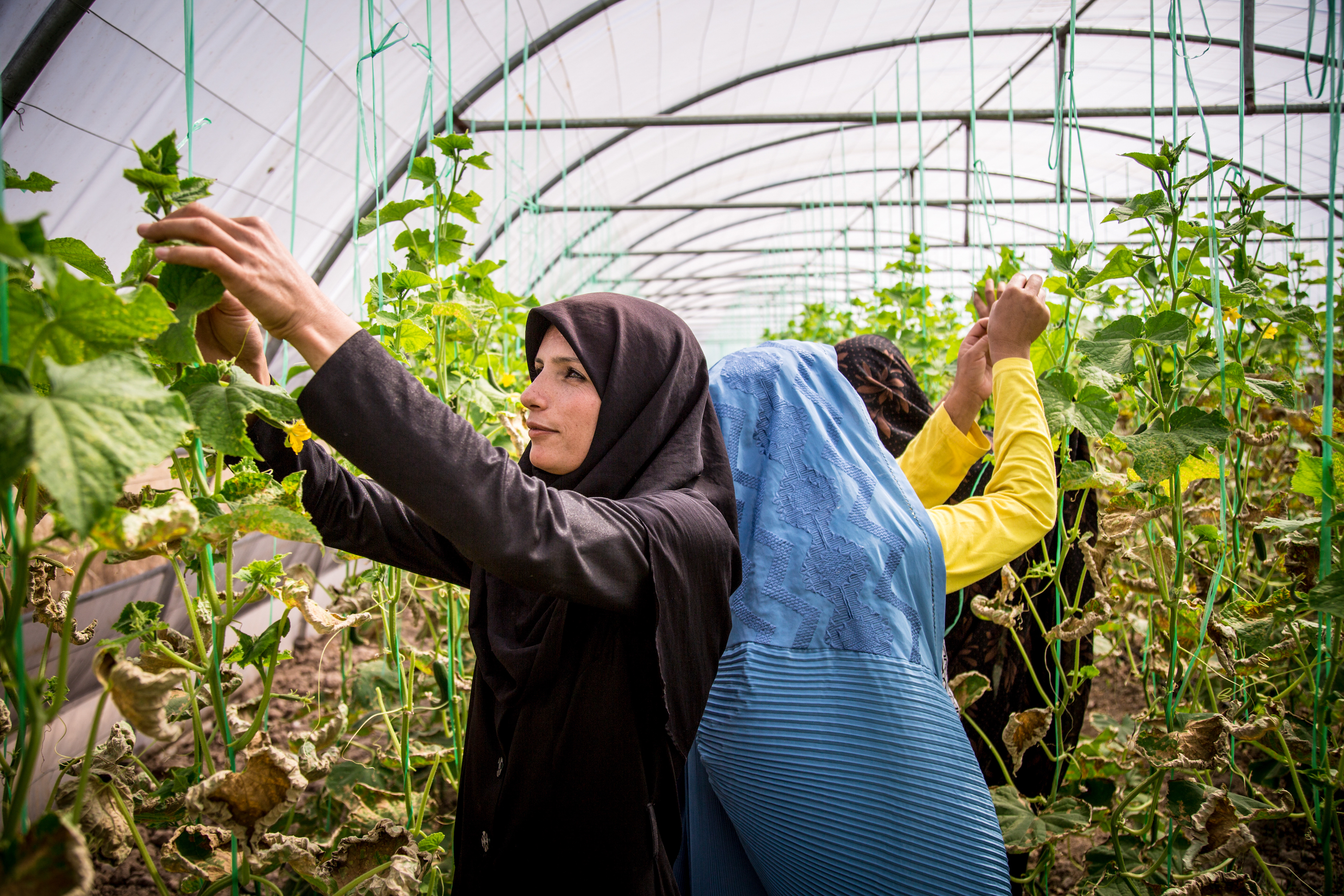World Food Day: A call to action for a resilient and equitable global food system
October 17, 2024

UNDP advocates for a systemic approach to transforming food systems to enhance sustainability and resilience.
As we mark World Food Day, it is imperative to confront the critical challenges facing our global food system. The combined impacts of the climate crisis and ongoing conflicts are undermining agriculture, which is essential for our sustenance. Extreme weather events like droughts, floods, and temperature fluctuations are wreaking havoc on food production.
A clear example of how climate change impacts food systems is the recent volatility in rice prices. Rice, a staple for over half the world’s population, is highly sensitive to supply disruptions. In 2022, severe flooding in Pakistan led to a sharp fall in the global rice supply. As a major producer, Pakistan’s production drop led to higher rice prices worldwide. For consumers, this price increase means more expensive rice in supermarkets, straining household budgets, particularly in countries that heavily rely on this staple.
Adding conflict to this mix—evident in places like Ukraine and Gaza—further exacerbates the crisis by displacing people, destroying livelihoods, and disrupting agricultural and industrial economies, thus intensifying hunger and instability. Fragile and crisis-ridden regions are home to the highest levels of acute food insecurity, with 258 millionpeople facing severe food shortages in 2022 alone.
The Global Report on Food Crises (GRFC) 2024 confirms the enormity of the challenge of achieving the goal of ending hunger by 2030. This insecurity often breeds unrest, leading to a vicious cycle of instability and violence.
At the UN Food Systems Summit +2 in July 2023, UN Secretary-General António Guterres underscored the urgency of addressing these issues, stating that "global food systems are broken – and billions of people are paying the price." He emphasized that these broken systems are the result of our choices, not unavoidable outcomes.

Climate change and conflict are undermining food production and distribution. These supply disruptions lead to higher prices in the market, straining household budgets.
In light of World Food Day, UNDP is seizing this moment to advocate for a systemic approach to transforming food systems. Our new white paper outlines four crucial dimensions for reform, aimed at enhancing sustainability and resilience:
- Improving governance: Effective governance is crucial for managing food systems. Ecuador provides a positive example through its recent reforms, including a new constitution that incorporates the rights of nature and emphasizes decentralized land-use planning. These changes have facilitated more effective management of the Special Amazonian Territorial Circumscription— a designated area within the Ecuadorian Amazon. This integrated approach helps ensure a sustainable future for both the Amazon and its inhabitants, demonstrating how governance reforms can effectively align conservation objectives with development needs.
- Addressing unsustainable drivers: Factors such as poverty, health issues, gender inequality and environmental degradation undermine the sustainability of food systems. Tackling these challenges requires a comprehensive approach. With support from UNDP, Peru's coffee and cocoa sectors have developed participatory, consensus-based plans, and have aligned stakeholders at national and regional levels aiming to drive sustainable growth and tackle the drivers of deforestation.
"Global food systems are broken – and billions of people are paying the price."UN Secretary-General António Guterres
- Building a fair food value chain: In industries dominated by a few large corporations and wealthy individuals, power is often concentrated, leaving smallholders and local communities with limited access to the benefits. To address this imbalance, UNDP, through the Good Growth Partnership, has collaborated with the Indonesian government to establish the Indonesia Sustainable Palm Oil Platform (FoKSBI). This platform serves as a neutral forum for all stakeholders to address key challenges in developing sustainable palm oil practices in Indonesia. UNDP is also helping to build tools to use blockchain for agri-food traceability. For example, the use of block chain to create a fair deal for Ecuadorian cocoa farmers. In Ghana, UNDP is working with Mondaléz to support the establishment of community-level landscape management structures to ensure fair trade practices.
- Providing sustainable finance: Sustainable finance is crucial for channelling resources and incentives that support local communities and farmers, encouraging private sector investment in sustainable practices, and promoting environmental and climate sustainability. It also helps build a more resilient and equitable economy.
In Guatemala, the ‘Great National Crusade for Nutrition’—a joint initiative by UNDP, UNICEF, and WFP - has uncovered deficiencies in financial, human, and material resources, providing evidence for the government and facilitating dialogues with the private, civil society, religious and other sectors. As a result, it has helped mobilize public and private financing to combat chronic malnutrition.
In India, UNDP’s Biodiversity Finance Initiative (BIOFIN) highlights the importance of equal participation and benefit-sharing between women and men as crucial for sustainable development. An exemplary case is the Access and Benefit Sharing Initiative, led by the Indian Institute of Oil Seed Research and the Telangana State Biodiversity Board.

In India and elsewhere, UNDP promotes equal participation and benefits for women and men as crucial for sustainable food systems.
What needs to happen?
- To address these unprecedented challenges, we need a system-wide perspective. While crises often lead to isolated humanitarian efforts, effective collaboration among UN agencies, international financial institutions, member states, and other stakeholders is essential for strengthening food systems toward resilience and sustainability.
- As we commemorate World Food Day, it’s vital to remember the 76-year legacy of the Right to Food enshrined in Article 25 of the UN Universal Declaration of Human Rights. Now more than ever, we must dismantle the barriers obstructing progress and build collaborative, sustainable, inclusive, and resilient food systems that serve both people and the planet.
This article was originally published in El País.

 Locations
Locations